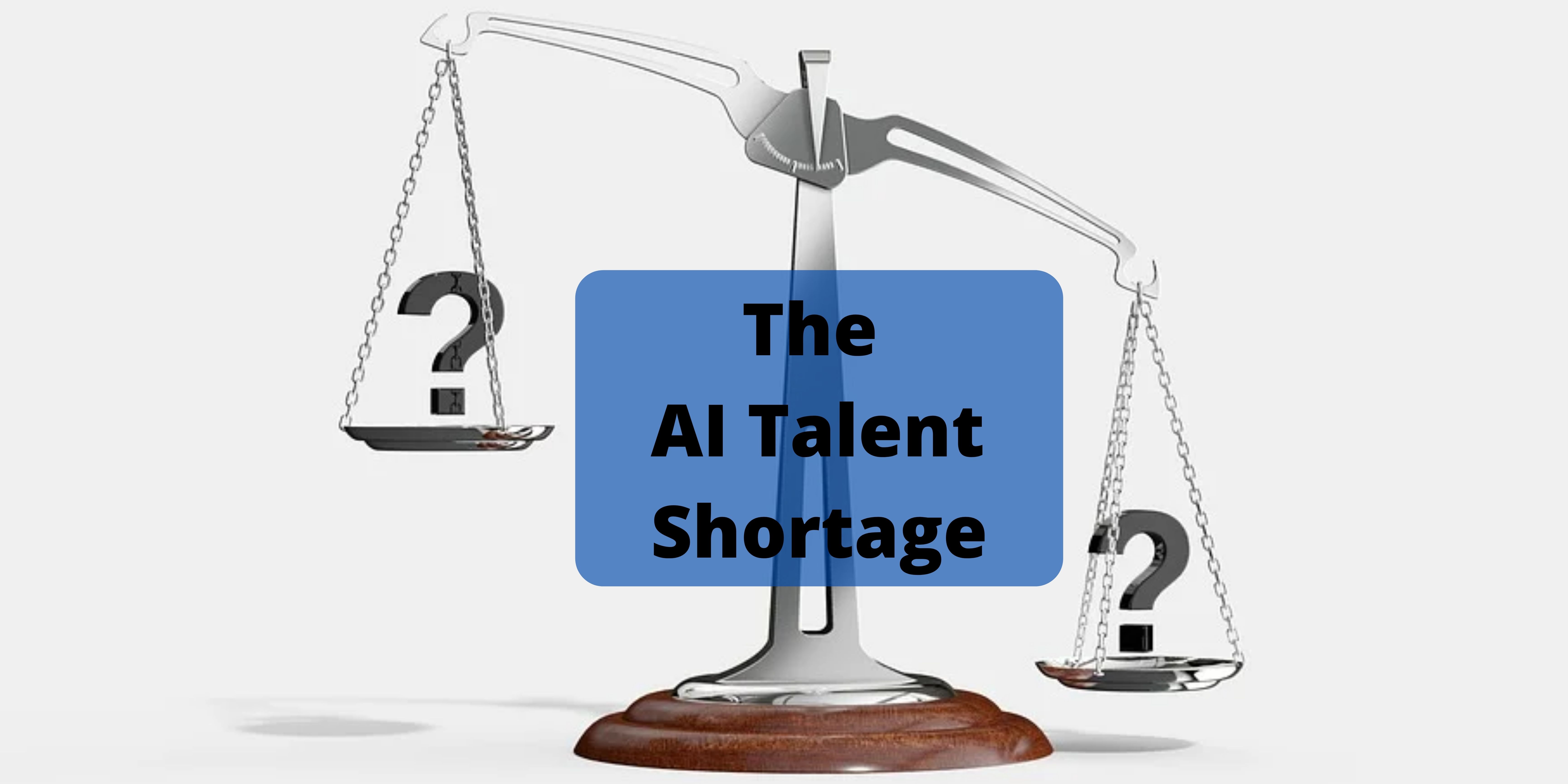AI automation is boosting business productivity and improving our lives. But the rapid adoption of AI and technology has led to an AI talent gap. It is estimated that only 10% of the world’s data scientists have the skills required to operate new AI technology.
Job Concerns
There are widespread concerns about jobs being lost due to AI automation, and while these concerns are valid, job loss doesn’t mean a scarcity of jobs. It is estimated that AI will create 97 million new jobs by 2027, and it is crucial to train for the job transformation in order to fill these new roles.
Though job loss is a concern, the shortage of AI talent is simultaneously stunting the ability of countries and organizations around the world looking to embrace transformation led by AI. Combined, these concerns point to a rising need to invest time and resources in educating and (re)training the workforce.
 According to a recent IBM report, around 120 million people around the world will need retraining to fit the job market. This includes 11.5 million people in the US. The current workforce will also need re-skilling in the coming years to support the shift towards AI and intelligent automation.
According to a recent IBM report, around 120 million people around the world will need retraining to fit the job market. This includes 11.5 million people in the US. The current workforce will also need re-skilling in the coming years to support the shift towards AI and intelligent automation.
![]() AI Talent Shortage
AI Talent Shortage
Though there has been a 19% increase in AI specialists over the last year, the amount of AI experts remains alarmingly small given the growing prevalence of AI.
The scarcity of AI expertise is an impediment to the technology’s adoption. Recent research reports that 56% of senior AI specialists say a shortage of new, competent AI personnel is the most difficult barrier to achieving AI application throughout business operations.
Bridging the AI talent gap
![]() One strategy to overcome the AI skills gap is to invest in education for digital, math, and technological education. While increasing the number of STEM and computer science students will help, it won’t solve the problem entirely.
One strategy to overcome the AI skills gap is to invest in education for digital, math, and technological education. While increasing the number of STEM and computer science students will help, it won’t solve the problem entirely.
According to the World Economic Forum, more than half (54%) of all employees worldwide will need major reskilling by 2022. To eliminate the AI skill gap, companies must confront the issue head-on and invest in re-skilling their workforce.
Bottom Line
There is no easy solution to the problem of AI skill shortage. Businesses must exercise caution and make the best use of limited resources while investing in strategies that will deliver long-term results rather than one-time remedies. More importantly, firms must plan think long term when it comes to recruiting, employing, and overseeing the newly arriving cohort of AI talent.
Fusemachines AI Fellowship Program in Latin America is a comprehensive program to train and provide a platform for students of the region to launch their AI careers. Learn more about the program here.

